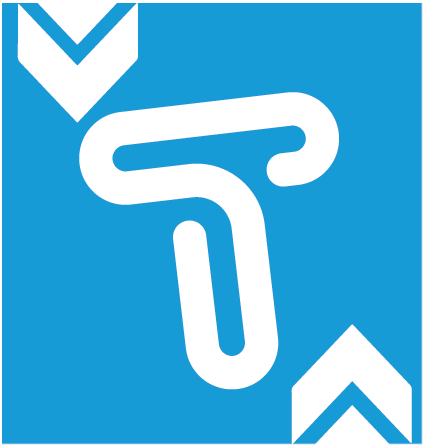INTRODUCTION
In the current unprecedented times of a global threat posed by a coronavirus pandemic that has triggered dire consequences for whole societies and nations, the maritime industry is playing an essential role in the response. Around 80% of global trade is transported by commercial shipping. This includes currently most-needed items such as vital medical supplies and equipment, as well as food, energy, raw materials and manufactured goods and components. These are essential for addressing people’s basic needs and for preserving many jobs in manufacturing, maintaining international trade and, in the end, sustaining the global economy.
In view of this, it is important to keep supply chains open and to allow maritime trade to continue. This requires that the world’s ports remain open for ship calls and that ship crews’ changeover is allowed. Further, in these challenging times, some additional measures should be undertaken to protect the staff working in port communities and to ensure continuity of ports’ operations.
BEST PRACTICES
Based on several documents received from ports that are part of the UNCTAD TrainForTrade Network, the following measures have been implemented/observed and could serve as generic guidelines:
(1) Under the International Labour Organization’s (ILO) Maritime Labour Convention of 2006, flag States must ensure that all seafarers on ships flying their flag are covered by adequate measures for the protection of their health and that they have access to prompt and adequate medical care whilst working onboard. The Convention also requires port States to ensure that seafarers on board ships in their territory who are in need of immediate medical care are given access to medical facilities onshore.
RECOMMENDATIONS
It is crucial to keep the country’s borders open for all forms of freight transport, in particular ports considered to be essential national assets. Governments need to ensure that health measures are implemented in ways that minimize unnecessary interference with international traffic and trade; in particular, by respecting the requirements of “free pratique” for ships under the International Health Regulations (IHR). The principles of avoiding unnecessary restrictions or delay in port entry for ships, persons and property on board are also embodied in articles I and V and section 6 of the annex of the Convention of the Facilitation of Maritime Traffic (FAL Convention). This is underscored by the International Labor Organisation (ILO) and the International Maritime Organisation (IMO).
The way forward
As ports moved forward to win the battle against this pandemic, several milestones needed to be achieved:
- Boost Internet capabilities and accessibility inside and outside port areas for port workers and users alike. Connectivity as mentioned by the World Bank Group is a “public good” after all;
- Increase connectivity and data interoperability in Global Supply Chains by implementing Port Community Systems and taking advantage of Digital Ledger Technology the likes of Blockchain as promoted by the World Economic Forum (WEF);
- Develop shorter and more diversified supply chains supported by advanced automation and labor-protective relocations in line with climate change objectives;
- Reinforce port regional cooperation to build more resilient trade nodes to brace for future COVID-19 pandemic-like shocks;
- Design new policies for resilient and inclusive ports to reach out to the most vulnerable people who are often dependent on the port communities’ economic and social fabric; and
- Engage in innovative training approaches and well-being at all-staff levels leveraging on the technology.
Lastly, thanks to the support of the United Nations Development Account (https://www.un.org/development/desa/da/da-response-to-covid-19/) and following requests from port members, UNCTAD engaged in the development of a TRAINFORTRADE training and capacity building package called “Building Port Resilience Against Pandemics” (BPR) that will be made available to port communities around the world.
The structure of this BPR course has been defined during eBrainstorming sessions in May and June 2020 with port experts from the Dominican Republic, Ghana, Nigeria, Malaysia, Indonesia, Ireland, Spain, Brazil, Greece and the IAPH Secretariat.
Crisis Protocol
The following section presents an example of a crisis protocol that can be used as a guide on actions that should be implemented in relation to strictly defined crisis levels.
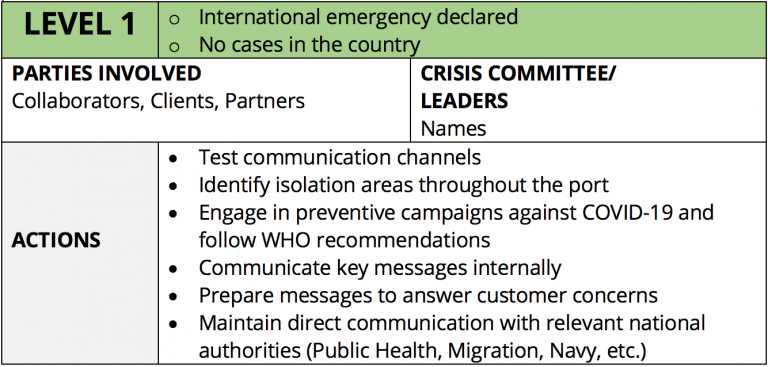
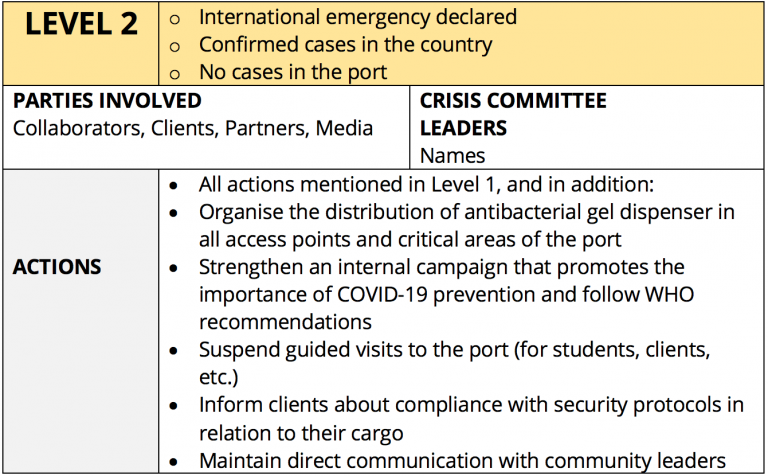
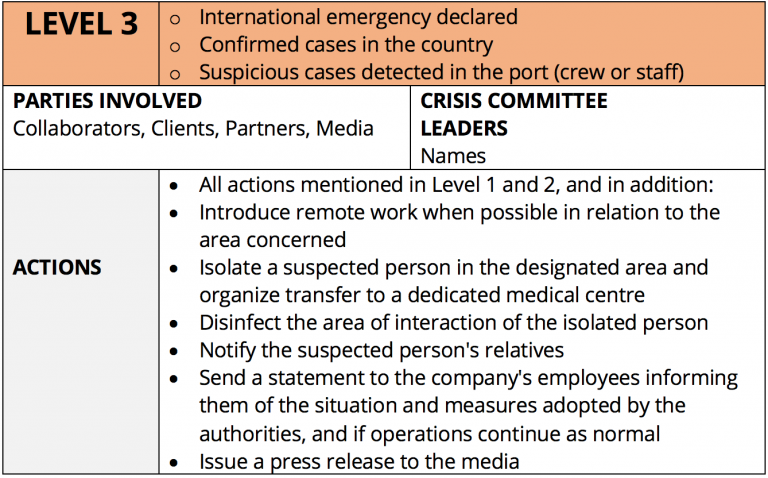
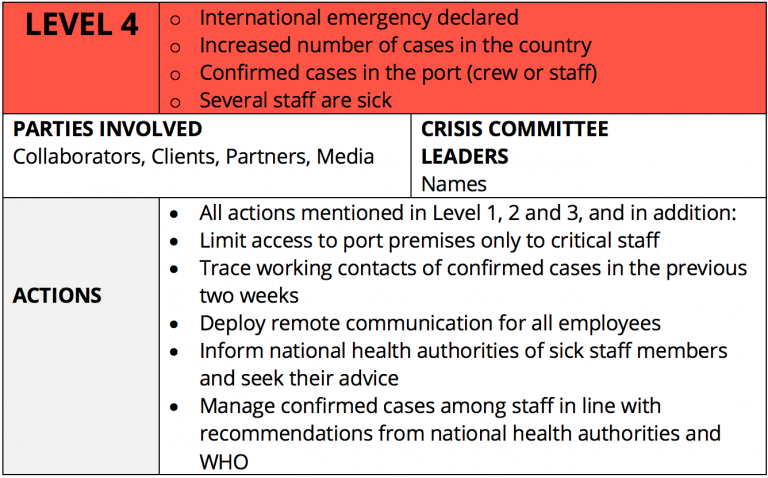
Information collected from the following entities
(Ports, Authorities, etc…)


